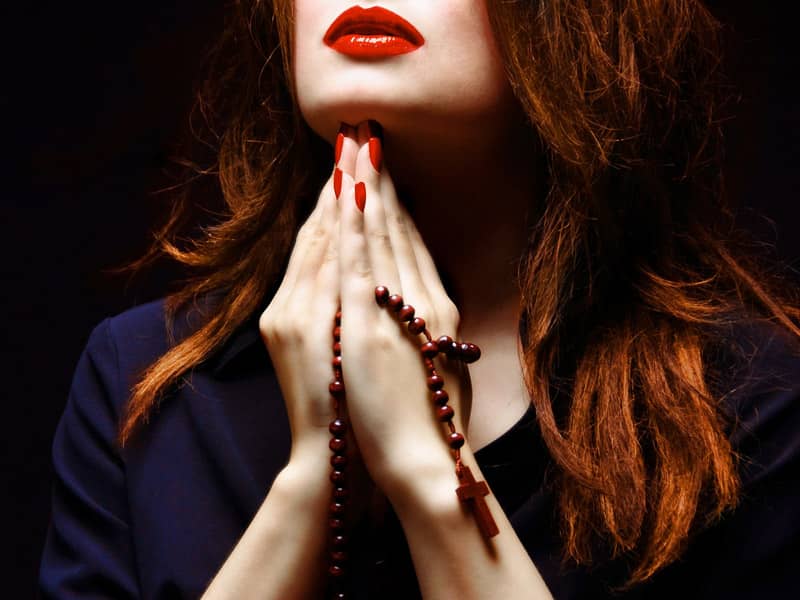Most Jews consider themselves Jewish for reasons that have nothing to do with mitzvot--the religious duties of Judaism--and everything to do with the demographics and culture of secularized American Jewry. Jews define themselves as Jewish because they are scholarly and intelligent. Because they "look Jewish," and everyone regards them as Jewish. Because they spend big-time on interior decoration. Because they love Seinfeld and use Yiddish words. As one former board member of The Anti-Defamation league told me: "I'm a bagel-and-cream-cheese Jew."
None of these definitions is a religious one, and the Jewish community is now struggling with this question: How Jewish are Jews who have given up all religiosity? Even the Reform branch of Judaism, which has long disdained ritualistic observance of the Jewish law, has lately been singing a different tune. "With the absence of the commitment to religious life the Jewish people does not survive. You can't have one without the other, and we need a renewed emphasis on the religious dimensions," Rabbi Eric Yoffie, president of the Reform movement's Union of American Hebrew Congregations, recently told the Jewish Telegraphic Agency. He was commenting on Gallup poll results in October indicating that religious observance among Jews is far lower than for any other major faith. Jews are one of the "least religious groups," the poll said, noting that only 30 percent of Jewish respondents said their religion was "very important" to their daily live, as compared with 60 percent of Americans overall.
Yes, it's everyone's problem, but it is distinctly a Jewish problem, too. There are qualities to admire in people who have a religious understanding. The awareness of mystery, of the irrational, of the larger-than-self. When Michael Irvin of the Dallas Cowboys was seriously injured in a recent football game, his teammates gathered in the center of the field and said a prayer. My friend Steve Friedman told me of a Christian colleague of his in New York who on learning that a friend was sick went over to St. Patrick's Cathedral to light a candle. "I told her the first thing I'd do is look up the best doctors in the city," Friedman said laughing. "Though I'd probably pray for them at home, in my own little way."
Because lighting a candle is voodoo. But while I am highly secularized myself, still I respect the humility of the religious, the sense that there are larger forces than rational human endeavor. When Jews call religious Christians yahoos or nuts, they are actually attacking their own religion, which has similar proscriptions and commands. Secularization has even put in danger the Jewish legacy of social justice. Where was any expression of concern in the Jewish community over the Government's role in the destruction of 80-some members of a longtime religious community in Waco, Tex.? You might counter that the values I'm extolling--humility, not taking yourself too seriously, respect for poverty--are elements of the Jewish ethical tradition.
Does it ever strike you that the great ideas of secularism that have now carried the boomers to age 50--from the sexual revolution to free expression in Hollywood to the current New Age/North Face/Stanley Kaplan SAT cram courses for your kids/yoga zone--are limited models for existence, and that all are commercialized?
Of course, everyone wants to be spiritual these days. But ethical principles are not just plucked from the air; they are encoded and developed through study and instruction and practice, as the halakah, or Jewish "way," has been. Even great works of humanist art, from Melville to Camus, deal with the struggle between an individual's freedom and a religious understanding. Yet in our culture now only Republicans talk about God, and when they do they are frequently called yahoos.
I'm not saying Jews should eat kosher. Jewish law, when I think about it, strikes me as too outmoded and narrow to contain my American ambition. But when do I even think about it? What I'm talking about is the utter loss of religious outlook among Jews. Over lunch, Steve Friedman told me about some of the Jewish religious duties I didn't know about. Don't ask the price of something if you know you're not going to buy it, lest you give the shopkeeper false hope. Don't treat anyone like an object. Feed your animals before you feed yourself. Try at whatever cost to maintain peace in the household. Soulful rules. And we've replaced them with a nihilistic materialism.

